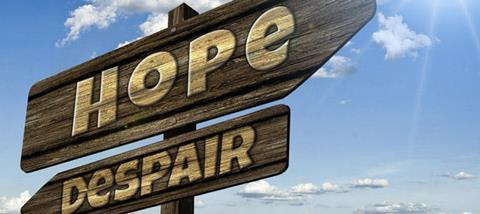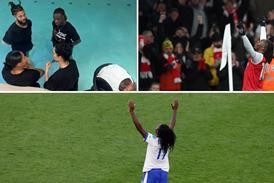
AP: Your new book Soul Survivor opens with a chapter entitled Recovering from Church Abuse. Could you summarise the problems you encountered in your upbringing in a local church?
PY: The church I grew up in was on the wrong side of most of the major social issues of my day. They were on the wrong side of the race issue. I grew up in the southern United States and they were strongly opposed to integration and taught a theology that I later found out was just completely wrong.
They were on the wrong side of issues like poverty and the war in Vietnam. But more than that, the church misrepresented God. They talked about the gospel being good news but I didn’t sense much good news. I sensed a God of judgement, a very harsh, unforgiving God who had a scowl on his face all the time. This was true of Jesus as well.
I wrote a book called The Jesus I Never Knew because, though I knew a lot about Jesus growing up in church, there were parts of Jesus I didn’t know.
It struck me that the kinds of people who were most threatened by Jesus were the self-righteous, religious, pious folks who were intensely concerned about personal morality. These were the people at my church. They were Pharisees and like the Pharisees they would pick out motes in other people’s eyes when actually they had huge beams in their own. Jesus himself seemed to prefer spending his time among the social outcasts, the moral outcasts and people that we wouldn’t let in our church. As I got to know Jesus I realised that he probably wouldn’t have felt very comfortable in our church. Here we were claiming to follow Jesus but we didn’t resemble Jesus in either our behaviour or our attitudes.
AP: In your book Soul Survivor you speak of 13 people who have had a major impact on you, people you knew personally and others through their writing. Was there anyone left out that you might have included?
PY: Yes. I had a much longer list to begin with. There were two British people who I wish had made it into the book. One is Dame Cicely Saunders who is the founder of the modern hospice movement and another is Sir Ghillean Prance who was director of Royal Kew Botanical Gardens. Both are fine Christians.
But the 13 I chose are the people who affected me at a very deep, life changing level. They weren’t just fascinating people who I have met, but people who have arrested me, who have made me change my perceptions and made me rethink my faith.
AP: If you had to select the person who made the greatest impact who would it be?
PY: That ’s an easy one. It would have to be Dr Paul Brand. He’s an interesting case:he spent one third of his life in England, one third in India and then – actually a little over a third now – in the United States. And so he represents a global perspective that some of these others do not.
There aren ’t that many times in my life where I can look back and say ‘God did this’ but I do think that God plonked me down in close proximity to Dr Brand. He is one of the great people who has lived of recent times, one of the true people you can point to and say this is what a Christian should be. I was given the equivalent of 10 years to follow him around and check him out. This was at a time when I would not have been comfortable writing about my own faith; it was still forming, still up in the air. But I could write about his faith with great integrity and confidence.
AP: The list may seem strange to many evan- gelical readers with only Dr Everett Koop and Dr Brand known as classical evangelicals.British readers might expect other names to be there.
PY: Billy Graham,Chuck Swindoll, James Dobson?
AP: Yes, for example! So were there no other well-known evangelicals that made an impact on you, or is it just that for the service of the book it was appropriate not to include them?
PY: This is what I call a ‘cross-over’ book (aiming for both the Christian and non-Christian markets). Let me explain how it came about. I attended Renaissance Weekends – an event in America where people from a lot of different fields get together: physicists, sociologists, educators, supreme court justices, astronauts. It’s founded by Phil and Linda Lader who recently served as Ambassador to the Court of St James, London. They invite a certain number of Christians to each of these weekends. When I attended I began to ask: ‘who would I like to introduce these people to as representatives of the kind of faith that has affected me?’ I was thinking of people who would have obvious credibility in the eyes of non-believers. So I came up with a list of people who achieved something professionally in a way that everyone would recognise. As I got to know these people I found that their faith was their motivation and the fuel that made them the kind of people they were.
AP: Your description of the people includes warts and all, yet these men and women were able to impact you. You seem less forgiving of the evangelical subculture. Why?
PY: Probably because I think those were the people who wounded me. Every week I get 30 to 40 letters, including many from here in the UK, who tell stories of their own wounds. I don’t go to abusive churches now. I did, I grew up in them. Every writer has to figure out who they communicate to and it seems pretty clear from the letters that I get, that I speak most meaningfully to people who have been wounded, either by a religiously-abusive family or by a church. The church needs to improve in its willingness to admit when it’s wrong. Grace is a gift, it’s absolutely free but you can only receive the gift if your hands are open. So many times we have our hands closed. How many times have you ever heard a pastor stand up and say ‘I was wrong, I thought I heard the voice of God but obviously I didn’t. I made a mistake’?
Christian organisations are always rationalising, covering their tails. It seems to me that the one distinctive that the church has that no other institution has is that we believe from the beginning that we are flawed, that we will never get it all right, and grace means depending on a God who can work through even our mistakes and redeem them and transform them.
The most common comment I get when readers write to me is ‘You are so honest about the Christian life’. It seems to be a strange compliment because honesty should characterise the Christian community. When I look at the Bible’s characterisation of the churches in the New Testament such as Paul ’s comments about the churches in Galatia or Corinth, or the letters to the seven churches in Revelation, I find it doesn’t do a whitewash job. It’s very open, indeed, brutally honest about the immaturities, the places where the church needs to grow. The more we white-wash what people know contains flaws and inconsistencies, the more we’re perceived as propagandists. I think we have the right, an obligation even, to be honest about ourselves and about the Church. It’s the biblical pattern to be more honest about our own flaws and more forgiving of those who are more distanced from us.
AP: What do you hope the book will do?
PY: I mentioned that I am writing for a cross-over audience. Let me explain. I am an evangelical and try to push the edges a little bit. I think for evangelical readers who have read some of my other books, Soul Survivor would be a step forward in mining truths from places we might have overlooked. These really were people who have shaped my faith. At least one of them is not even a Christian but I learnt deeply from him.
But for the non-believer readers, I hope discovering how my faith survived the Church, will be a help. A lot of people have negative attitudes about the church. Yet these people want to cultivate a kind of spirituality. They distrust the Church, they distrust professionals in the Church. So I’m saying ‘I’m not a professional, I’m not one of those clerical-collar types. I was just as aversive to them as you are today, but I did come back to the church. These are the people who led me back.’ So I want to accomplish two things depending on where the reader comes from.
AP: Some would perceive your questioning approach as dangerous,especially given the huge market for your books.How do you respond?
PY: Well it may be, I find that people who get most upset are not people whose faith is wavering. They are people who think they’ve got it figured out and I should too. I’m not worried about those people. They’re not going to change or be threatened by anything I say. On the other hand there are many people who have had the same questions and doubts that I have and haven’t found a safe place for them. I talk about the Church being a safe place for doubt – a haven for doubt. When Jesus appeared to Thomas he was with the other disciples. They didn’t kick him out for not believing the resurrection. And if Thomas hadn’t been with the other disciples he never would have seen the resurrected Jesus. Now,you don’t hire a Thomas to write the Church’s creed, but hopefully the Church can be a safe place that welcomes people who are strung out along the path. Too often the church instead puts up hurdles. Jump through these hurdles and then we’ll let you in the door and unless you get over these hurdles we’re going to make you feel inferior somehow!
There is another group that I do worry about. These are people who have never struggled with some of the things I have struggled with, but read of my struggles and may be encouraged to doubt. Yet the thing that does encourage me is that I’m a lot milder than the Bible. I would never say some of the things that Job or the Psalmists wrote. I don ’t have that hostility that I see in the Bible. And if God saw fit to put their writings in, I think he’s big enough to take our doubts and questions. Furthermore, I work pretty hard in my books to end up in a place which does not destroy people’s faith. So for some people I may be skating on thin ice, and maybe they’re not ready for that. In Soul Survivor I’m quite aware of a whole new audience of people who have far greater questions and struggles than I do and they’re people considering Christianity as a remote possibility. I would rather err on the side of speaking to them even if I offend some people on the other side.


























